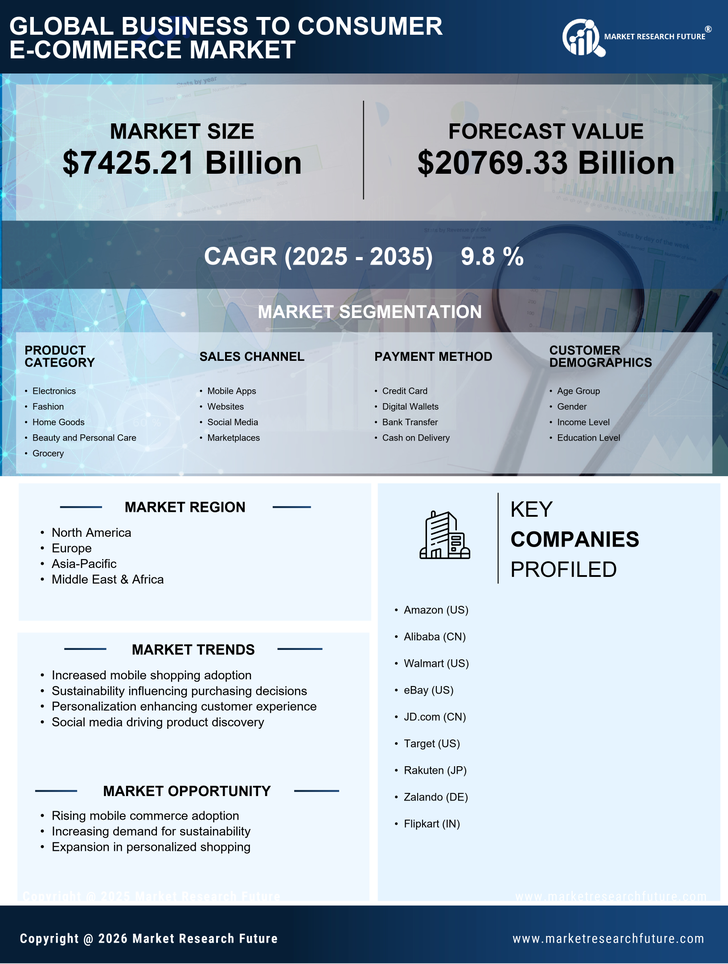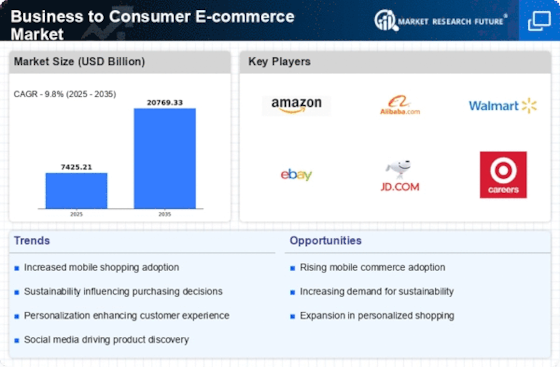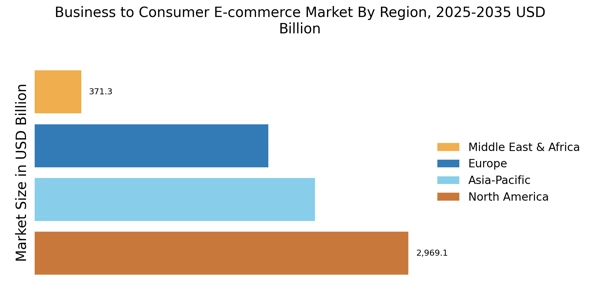The Business to Consumer E-commerce Market is characterized by rapid growth and fierce competition, driven by advancements in technology and shifting consumer behaviors. This sector encompasses a wide array of product offerings and services, including retail, digital goods, and subscription-based models. As online shopping continues to permeate various demographics and geographies, businesses within this market are recognizing the need to adapt to changing consumer preferences. Companies are leveraging data analytics, artificial intelligence, and personalized marketing to create seamless shopping experiences while optimizing their supply chains.
The impact of global events, social media influence, and the mobile-first approach are reshaping traditional retail and pushing innovations that redefine the standard of online interactions. The competitive dynamics illustrate the importance of agility and customer engagement in capturing market share.
Amazon stands as a towering figure within the Global Business to Consumer E-commerce Market, showcasing unparalleled market presence and operational strengths. Its expansive product range, which includes electronics, home goods, clothing, and digital content, ensures that it covers multiple consumer needs across various categories. The company’s seamless logistics and distribution network are pivotal, allowing it to offer rapid delivery options, including same-day shipping. Amazon's focus on customer experience is highlighted through its innovative Prime membership model, which provides exclusive deals, streaming services, and a loyal customer base.
Furthermore, Amazon has implemented advanced AI and machine learning technologies to personalize shopping and optimize search functionalities, positioning it as a leader in customer-centric operations. The company maintains a formidable competitive advantage through its vast scale, operational efficiency, and continuous investment in technology and infrastructure.
Etsy, while distinct from the mainstream e-commerce giants, has carved a unique niche in the Global Business to Consumer E-commerce Market by prioritizing handmade, vintage, and unique goods. This platform connects individual artisans and crafters with global consumers seeking personalized products, thus capitalizing on a growing trend toward unique and artisanal items. Etsy's community-driven approach fosters a strong relationship with both sellers and buyers, enhancing customer loyalty. Its marketplace includes a range of products such as home decor, jewelry, craft supplies, and custom-made items, giving it a diversified portfolio that appeals to a specific demographic.
Additionally, Etsy has demonstrated growth through strategic acquisitions, enabling it to expand its capabilities and improve user experience. The company’s strengths lie in its brand identity focused on creativity and craftsmanship, robust seller support, and effective marketing strategies that leverage social media platforms to drive traffic to its site. This unique positioning enables Etsy to thrive in a competitive environment while maintaining its appeal to consumers looking for personalized and meaningful purchases.


















